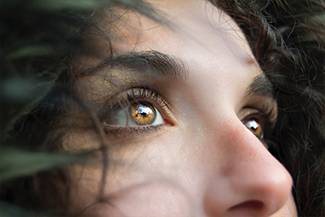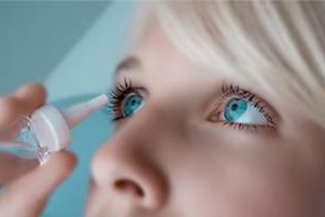
Eye Drops for Dry Eyes: Why You Should See Your Eye Doctor
Effectively managing a health condition like dry eye syndrome (DES) requires a thorough diagnostic and treatment process. So why do so many people find themselves pacing up and down the eye drop aisle at their local drug store, searching for yet another eye drop to ease their symptoms?
Knowing exactly what’s causing your symptoms and how to treat the condition at its source is the only way to attain long-lasting relief. At Bright Eyes Family Eye Care Dry Eye Center, we do more than just treat the symptoms — we determine the underlying cause of your DES and get to the root of the issue.
Do You Have Dry Eye Syndrome?
DES is a progressive eye condition that affects over 20 million North Americans annually. It is caused by either poor tear quality or insufficient tears.
The most common cause of poor tear quality is a condition called Meibomian gland dysfunction (MGD), a blockage of the meibomian glands — the tiny glands at the edge of the eyelids that secrete an oily film into your tears.
Some medical conditions that can cause decreased tear production include Sjogren’s syndrome, rheumatoid arthritis, lupus, scleroderma, thyroid conditions, and lupus. Aging and a vitamin A deficiency can also lower tear production.
Symptoms of DES range from mildly uncomfortable to debilitating, and can include:
- Red eyes
- Dry eyes
- Painful or irritated eyes
- Watery eyes
- Light sensitivity
- Itchy eyes
- Fatigued eyes
- Burning eyes
- Blurred vision
DES can make it difficult for the eye to flush out foreign bodies, so sand, grit and allergens sometimes get stuck in the eye.
Why Do People Use Over-the-Counter (OTC) Eye Drops?
 Given how uncomfortable dry eye symptoms can be, it’s no surprise that dry eye sufferers seek relief using over-the-counter drops. People with DES may not realize that they should visit their eye doctor rather than seek solutions on their own.
Given how uncomfortable dry eye symptoms can be, it’s no surprise that dry eye sufferers seek relief using over-the-counter drops. People with DES may not realize that they should visit their eye doctor rather than seek solutions on their own.
Some eye doctors recommend using OTC eye drops to temporarily treat mild symptoms until the condition naturally heals. For example, after an eye injury or surgery, many find that lubricating eye drops soothe the eyes and provide moisture.
But not all eye drops are created equal. People with mild to moderate cases of DES who seek relief from OTC solutions may be choosing the wrong types of drops or dosage for their eyes.
The three main categories of non-prescription eye drops are:
- Lubricating eye drops/artificial tears
- Antihistamine eye drops
- Redness-reducing eye drops
Masking a mild case of DES by using redness-reducing eye drops (also called decongestant eye drops) won’t address the underlying source of the redness. In fact, decongestant eye drops have been shown to exacerbate DES symptoms in the long run.
What’s more, your eyes can eventually become [desensitized] to the effects of OTC eye drops after repeated use. This eventually leads people back to the drugstore in search of even stronger eye drops, perpetuating the never-ending “eye drop cycle.”
End the Vicious Eye Drop Cycle
Experiencing continual eye irritation indicates the need for professional eye care. An optometrist will isolate the cause of your DES and use their expertise to find the most effective treatment for lasting relief.
Even if you have a mild case of dry eye syndrome, now is the perfect time to start treatment, before symptoms worsen. If you’ve sought help in the past but were told nothing else could be done to treat your eye condition, speak with Dr. Tracy Phillips regarding the latest and most effective dry eye treatments.
If you’re ready to end the cycle of getting over-the-counter eye drops without lasting relief, contact Dr. Tracy Phillips for a dry eye evaluation.
Our practice serves patients from Meridian, Collinsville, Marion, and Enterprise, MS and surrounding communities.REFERENCES
- https://www.allaboutvision.com/buysmart/eye-drops.htm
- https://www.allaboutvision.com/conditions/dryeye-syndrome.htm











